Child Development Stages
Similar information can be found in A Tiny Boat at Sea by Izetta Smith. The book was designed to help children who have a parent diagnosed with cancer, but the information is easily transferable to families affected by other illnesses.

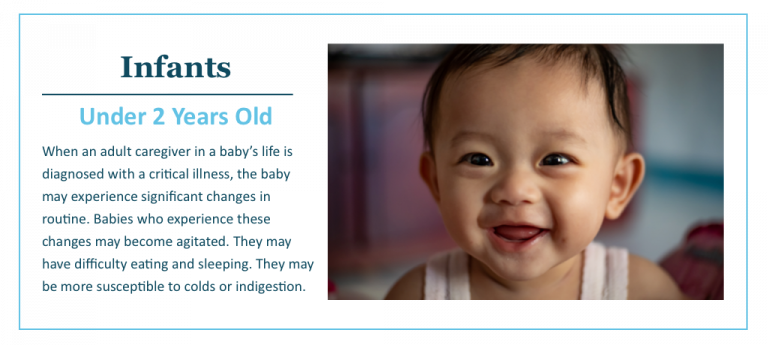
How to Help Infants
- Provide physical contact and reassuring attention to the baby.
- Maintain a baby’s routine for physical needs as best as you can (i.e. feedings, sleep schedules, walks, playtime).
- Hold the baby gently if he/she is agitated and crying. While the baby cries, you can say, “I love you. I’m here. I am sorry it hurts.”
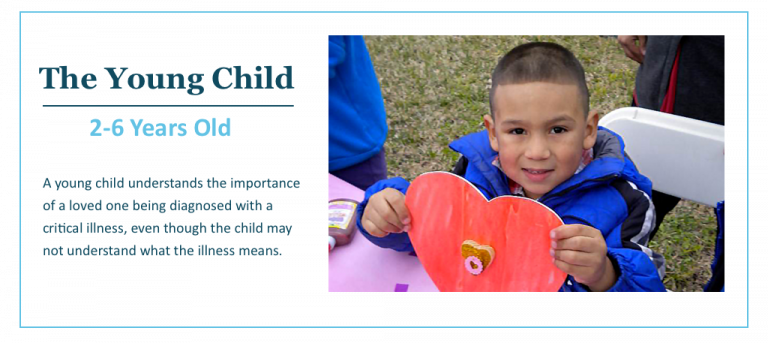
How to Help Young Children
- Use simple, truthful words (cancer, chemo, etc.) about the illness with your young child.
- It’s alright if your child asks questions over and over. When you don’t know the answer, say “I don’t know.”
Allow your child to make choices about being exposed to the medical parts of your treatment. These opportunities may help them learn more about what has happened. - Maintain structure and routine. Your child may have difficulty falling asleep and may experience night sweats and/or dreams from which they may wake up crying. Young children often process trauma while they are asleep. Listen to the images of their dream for this is an opportunity to hear a child’s feelings in their language.
- Tolerate your child’s temporary need to become “younger.” They may lose ground with potty-training. They may return to sucking fingers or pacifiers. They may also become clingy or want to sleep with you. Allow for this behavior, and when it is time, gently challenge your child to regain lost ground.
- Recognize that your children’s daily frustrations – in dressing, eating, playing, etc. – may be more intense because they are fueled by their feelings about the diagnosis of their loved one. Hold and love your child as best you can to allow him/her to cry their way through frustration.
- Give your child outlets for their pent-up energy and feelings (i.e. active play, yelling, sports). Designate an area of the house as the “big energy corner” for hitting and throwing pillows or yelling and being mad.
- Allow your child free and joyful fun. Children have a wonderful sense of taking breaks from their difficulties. Learn from them and try to do so yourself.
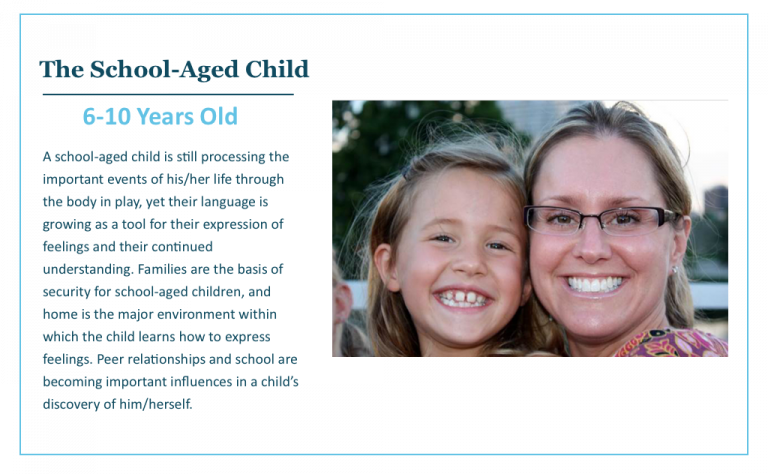
How to Help School-Aged Children
- Continue to answer your children’s questions honestly and as many times as asked.
Offer to include your child in seeing some of the medical aspects of the illness. Always ask your child whether he/she wants to be involved and how. - Find out when your child’s thoughts confuse them and clear up the confusion. For example, the illness of a family member:
- is NOT a punishment for your child’s bad behavior.
- is NOT a monster that comes to get them.
- is NOT contagious.
- Lower your expectations, if need be, of your children’s schoolwork because they are using a lot of their energy to cope with family changes. Work with school officials to tailor your child’s workload during difficult times.
- Read books out loud that have stories about the illness of a family member.
- Encourage sports and active play in order to lessen your child’s anxiety and physical tension.
Create a “big energy corner” of your house for the expression of anger and frustration. - Encourage art, music, dance, singing, crafts and other expressive processes.
Offer lots of hugs and holding. - Find peer support groups for your child and for you.
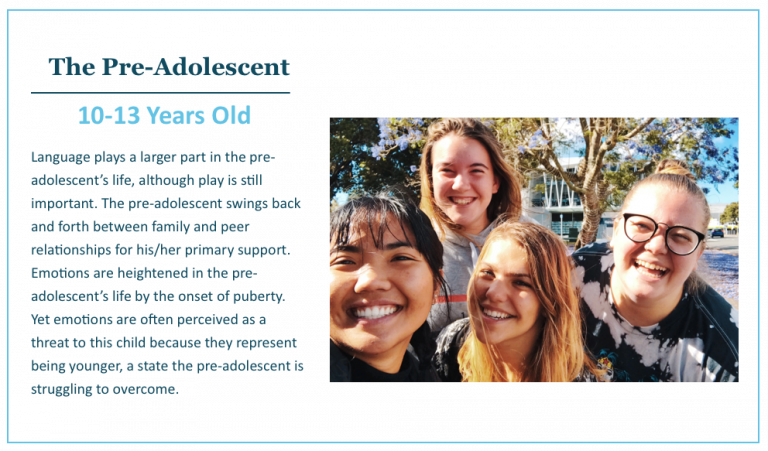
How to Help Pre-Adolescents
- Expect your child of this age to be in battle with their emotions. Respect their efforts to control or conceal their vulnerability. Be available, but don’t push.
- Expect that they may feel physically ill (i.e. headaches, stomach aches, colds).
- Encourage peer relationships and involvement. Look for peer support groups. Answer questions honestly and thoroughly. Be as detailed and scientific as you know how if your child asks for information. Stop explanations if they show loss of interest.
- Encourage physical outlets for your child.
Let your child cuddle or cry in your lap as he/she did when younger.
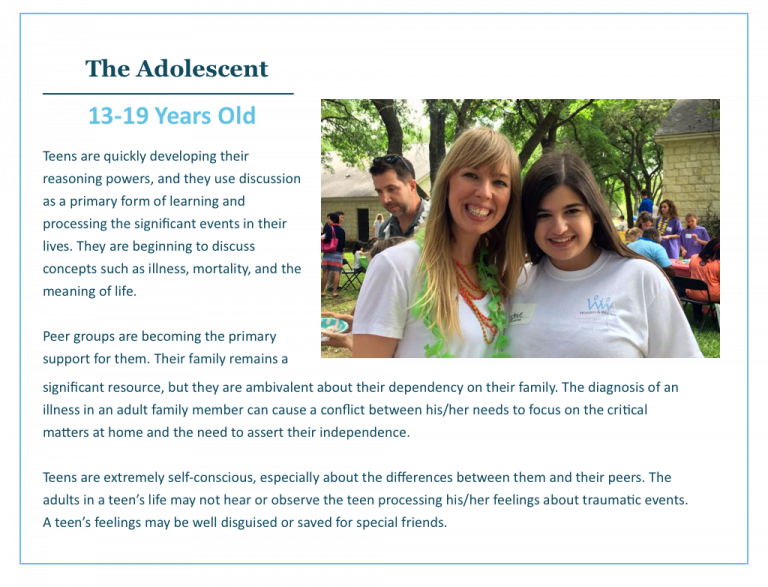
How to Help Adolescents
- Make time for your teen, even if you are not taken up on it. Occasionally remind your teen of your availability.
- Expect to hear your teen discuss the illness amidst larger issues such as the meaning of life, the unfairness in the world, etc.
- Expect that your teen may exaggerate the importance of certain aspects of this experience. Strong feelings may seem out of proportion.
- Allow for and accept these emotions.
- Encourage peer support for your teen.
- Expect that your teen may want to be out with his/her friends at important times during the illness.
- Expect that you may not know parts of what your teen is thinking and feeling about the illness.
- Expect and encourage your teen to have relationships with other adults.
- Expect periods of prolonged sleeping and inactivity, as well as periods of highly charged behavior.
- Expect eating habits to fluctuate. Provide a structure for appetizing meals.
- Friends can help get a teen involved in physical outlets for his/her feelings (e.g. sports, dancing, working out, etc.)
- Time spent with their peers can help your teen express his/her feelings (e.g. choir, drama, crafts, etc.)
- Watch for drug and alcohol use and get professional help immediately if you suspect it.
- Allow your teen their defensive behavior in hiding feelings, as long as it doesn’t hurt them or others.
Select a Category